Harlem Postcards Fall/Winter 2008–09
11.12.2008-03.15.2009
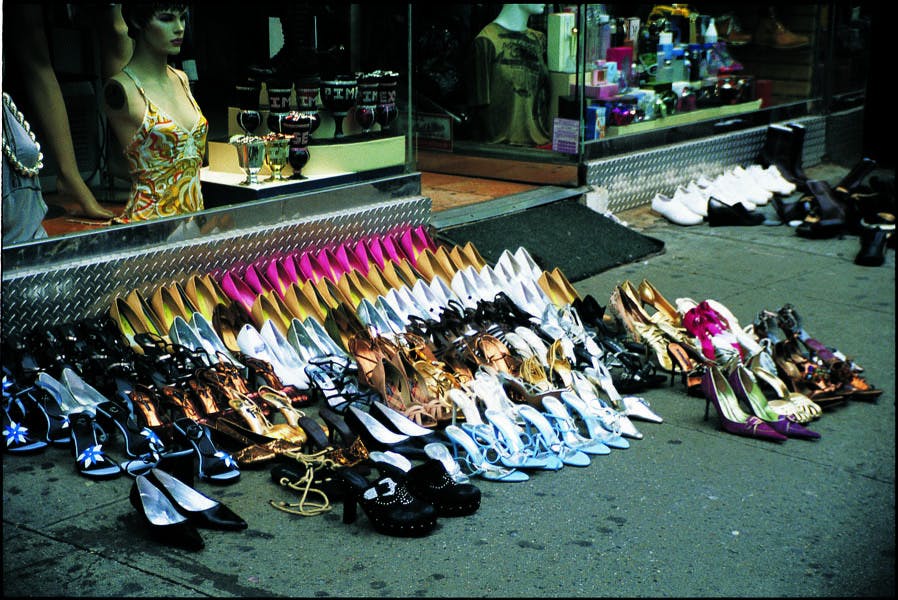
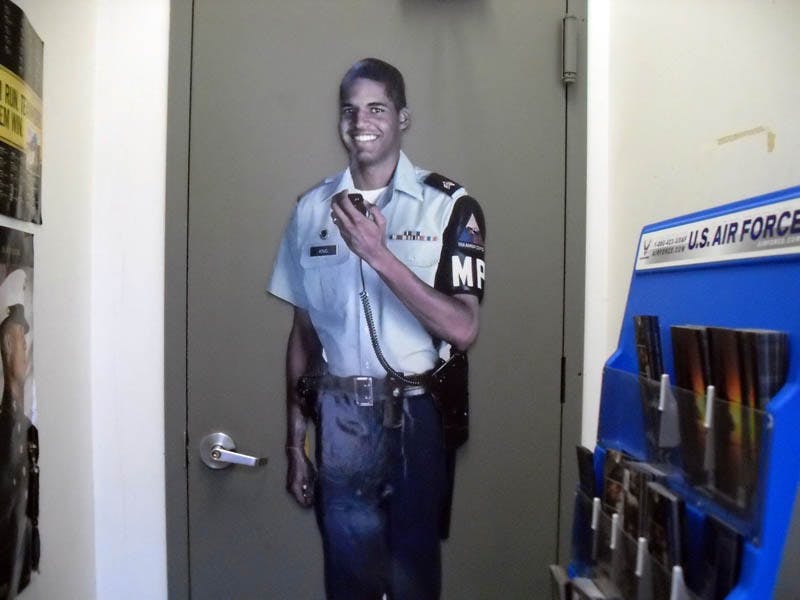
I am really excited to be part of Harlem Postcards. My first thought upon receiving the invite was that I wanted to go to the Army recruiting office on 125th Street. Since the invasion of Iraq, I’ve been focusing my art practice on military intelligence. One of the key issues in the public debate about the war is the politics of how the military recruits young adults in general and people of color in particular. The military plays a very significant role in Harlem and other communities of color around the country. It is the most racially integrated workforce America has, and it has provided professional training and social respectability to many members of minority groups. On the other hand, the military targets minority communities for recruitment with greater intensity during wartime, leading many to argue that soldiers of color are cannon fodder. I’m very interested in how the military sells itself to African Americans, Latinos, Asians, Native Americans and Arab Americans as the solution to their problems, both economic and social. The advertising is sophisticated propaganda, direct and visually bold.
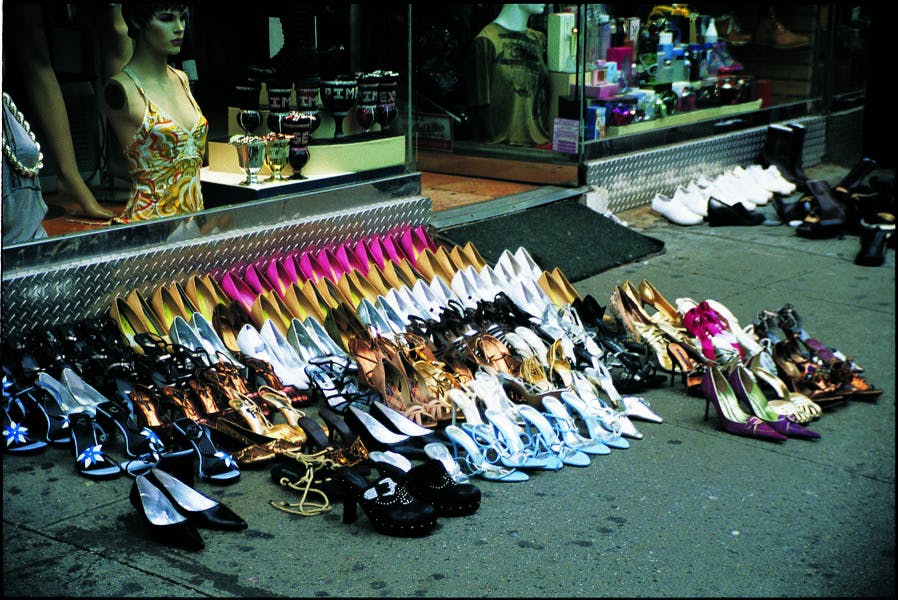
New York has always been a photographic mecca. Harlem in particular is loaded with inspiring images and subjects. My most recent visit this summer helped add to a series of studies I call “Fashion Statements.” Harlem’s High Heel Heaven/4 pair for $20 provides the stilettos for my still-life paintings, aptly dubbed “Stiletto Lifes.”
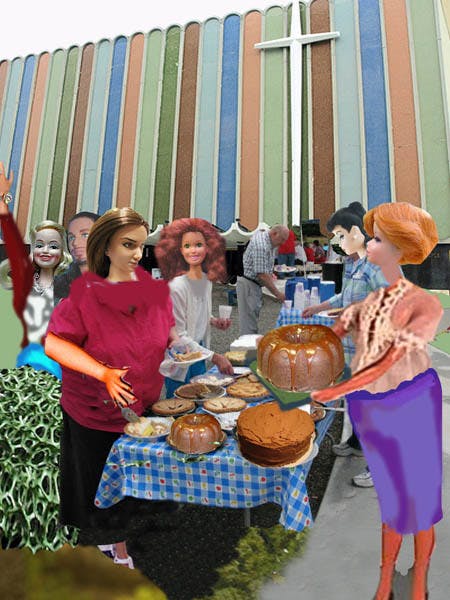
The exterior of Greater Refuge Temple reminds me of structures I know as a native of the Bible Belt. With a nod to romantics informed by great-grandparent tales of migration, I make a Southern projection onto Harlem’s lawn.
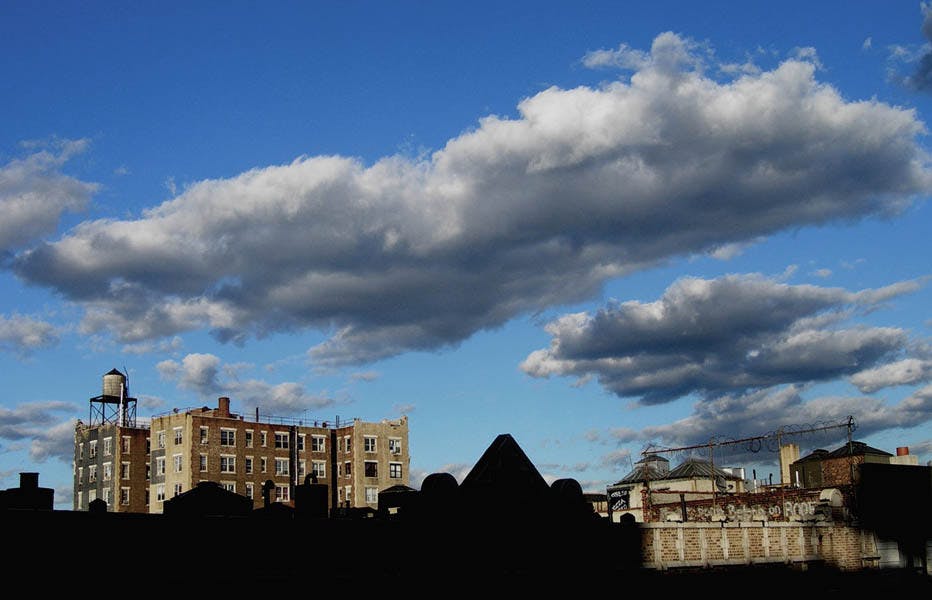
Waking from a dream, I looked out my bedroom window and was greeted by a sky in perfect order.
Harlem Postcards Fall/Winter 2008–09
11.12.2008-03.15.2009


I am really excited to be part of Harlem Postcards. My first thought upon receiving the invite was that I wanted to go to the Army recruiting office on 125th Street. Since the invasion of Iraq, I’ve been focusing my art practice on military intelligence. One of the key issues in the public debate about the war is the politics of how the military recruits young adults in general and people of color in particular. The military plays a very significant role in Harlem and other communities of color around the country. It is the most racially integrated workforce America has, and it has provided professional training and social respectability to many members of minority groups. On the other hand, the military targets minority communities for recruitment with greater intensity during wartime, leading many to argue that soldiers of color are cannon fodder. I’m very interested in how the military sells itself to African Americans, Latinos, Asians, Native Americans and Arab Americans as the solution to their problems, both economic and social. The advertising is sophisticated propaganda, direct and visually bold.

New York has always been a photographic mecca. Harlem in particular is loaded with inspiring images and subjects. My most recent visit this summer helped add to a series of studies I call “Fashion Statements.” Harlem’s High Heel Heaven/4 pair for $20 provides the stilettos for my still-life paintings, aptly dubbed “Stiletto Lifes.”

The exterior of Greater Refuge Temple reminds me of structures I know as a native of the Bible Belt. With a nod to romantics informed by great-grandparent tales of migration, I make a Southern projection onto Harlem’s lawn.

Waking from a dream, I looked out my bedroom window and was greeted by a sky in perfect order.